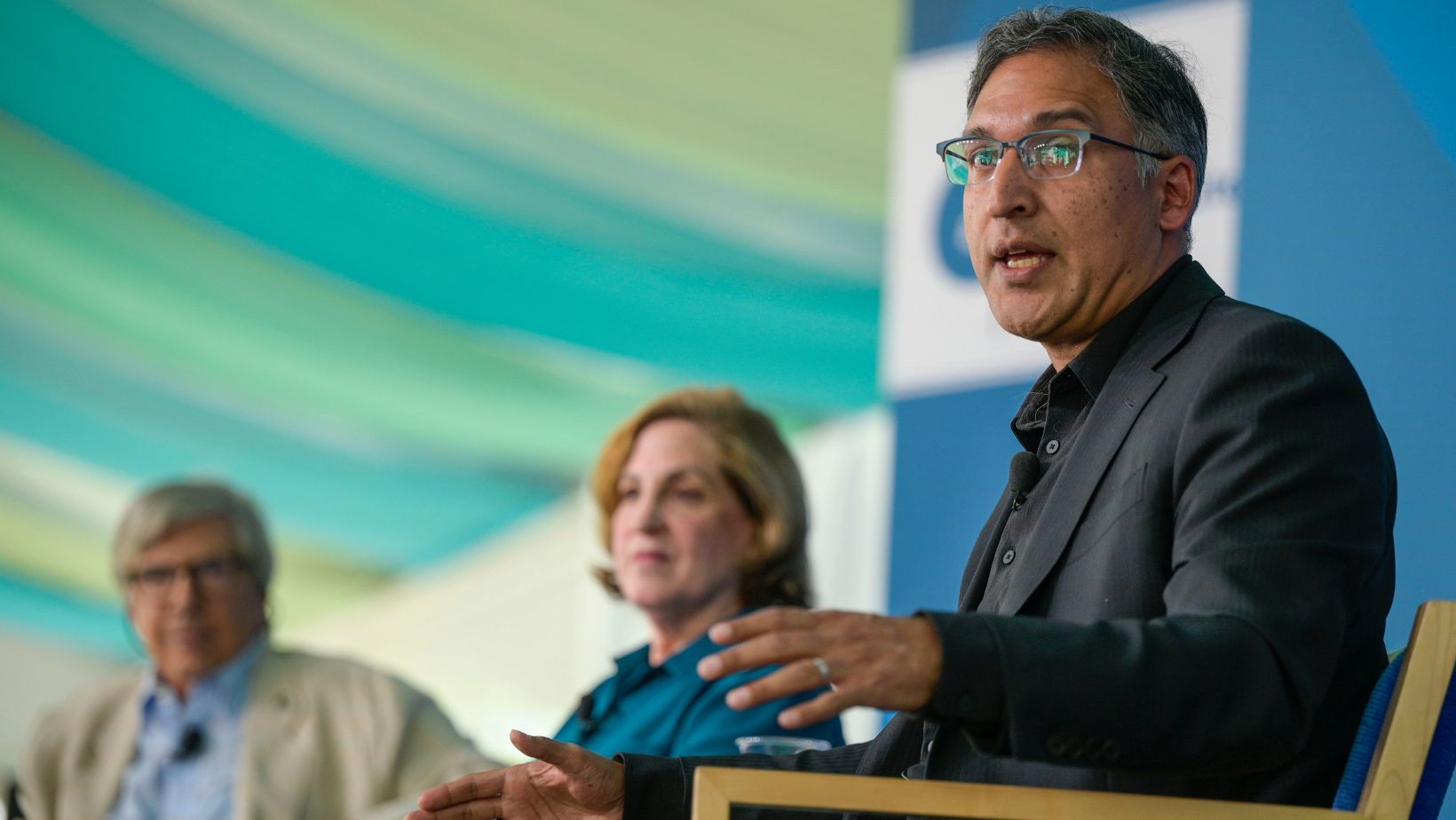[[nid:16581]]
Society of Fellows members recently gathered for a discussion on the pressing debate over the Common Core Standards Initiative and general education reform in Aspen, Colorado. The following day, the Fellows reconvened to raise questions resulting from the debate on the Common Core, a set of math and English guidelines students must show proficiency in before passing each grade level. “If there’s one arena that should be apolitical, it’s education,” said host Tony Caine, founder of Summit 54, an organization that works to improve access to educational opportunities in Colorado.
Three experts joined the reception to share their experiences from the front lines of education about progress in reform and the implementation of these standards: Nancy Pelz-Paget and Ross Weiner, of the Institute’s Education and Society Program, and Paul Pastorek, an education policy expert and former state superintendent of education of Louisiana.
“[Most educators] really don’t know how to educate kids to be college and career ready,” said Pastorek, who believes Common Core is part of the solution. Pastorek described the Common Core as the skills students must have to be able to succeed in college or in any career field they choose. He added that while most education levels could lead to a steady job 50 years ago, today’s job market requires this generation to be even more qualified.
Both Pastorek and Pelz-Paget agreed that engagement is key to the success of any educational program.
“It’s experiences that cause [students] to be educated,” said Pastorek, who believes that everyone, from school principals to individual teachers, is responsible for ensuring there is an innovative and dynamic learning environment for all students.
Experimental programs to address students who have unique learning profiles have already begun in schools. Some aim to create personalized learning tracks where students follow along to an online lesson at night and then come to class the next day to share what they learned. “We want to turn teachers from presenters into coaches,” said Pastorek. He emphasized the need to diminish institutional bureaucracy and push for better school governance, while helping teachers to continue learning through collaborative forms of professional development.
Pelz-Paget noted that while there are many schools currently working to create the best experience for their students and teachers, there is still work to do to turn these “islands of excellence” into the universal norm.
So far about 43 states and other territories have committed to the Common Core, making up the vast majority of the 14,500 school districts in the country. But the battle is far from over.
“We don’t have clear benchmarks for implementation of Common Core,” said Weiner, and educators are voicing their anxiety about these implementation details. With the plan for Common Core testing to begin in schools in the spring of 2015, the moderators listed a number of impending hurdles — from political to logistical — over the next year.
Regardless, once the test results are released, Pastorek said he’s hopeful they will provide a more accurate and thorough way to evaluate the effectiveness of schools across the country. He explained that even if educators are nervous about these transitions, we still have to push forward. “Kids can’t wait for adults to get their act together,” said Pastorek.

